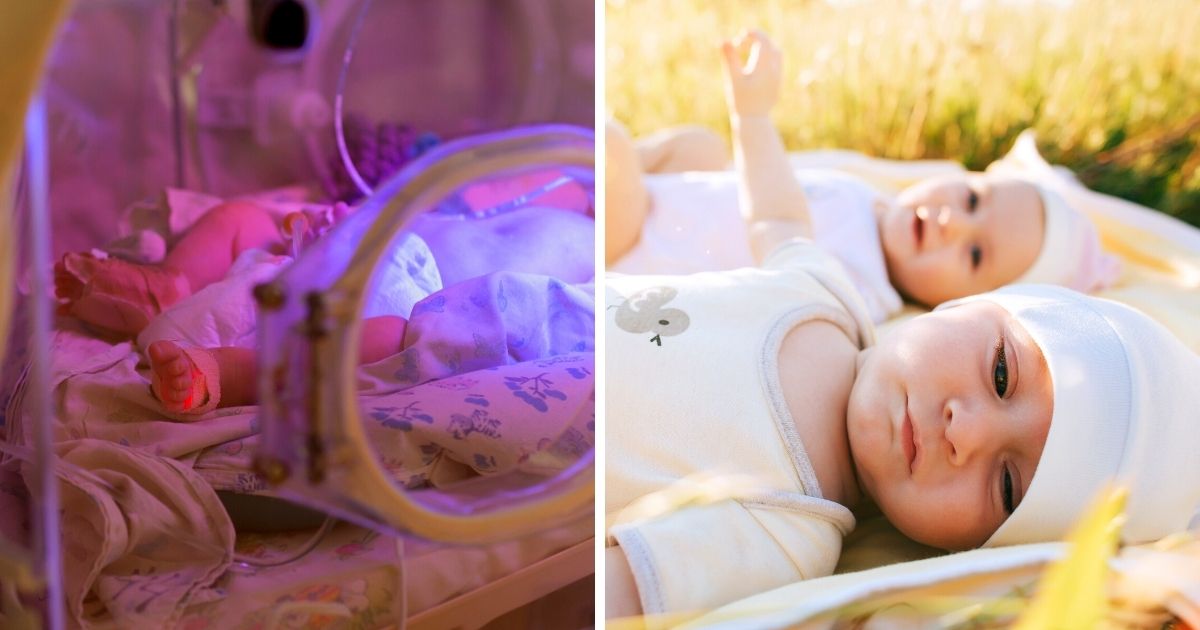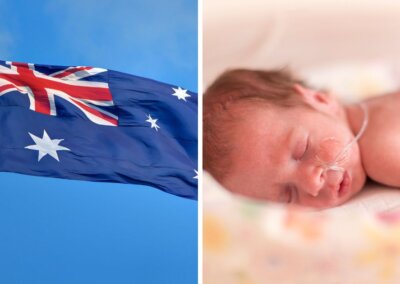The world’s most premature twins, who were born two weeks before the UK abortion limit of 24 weeks, are now happy and healthy three-year-olds.
Identical twins Kambry and Keeley Ewoldt hold the Guinness World Record for being the world’s most premature twins.
The tiny twins, who were born at the University of Iowa Hospitals & Clinics in the USA on 24 November 2018, had the odds stacked against them since before they were born.
When their mother, Jade Ewoldt, was 16 weeks pregnant, she found out her girls had twin to twin transfusion syndrome. In such cases, the twins share the placenta and one baby receives more blood flow than the other. This can lead to the demise of one or both twins.
Fortunately, that didn’t happen.
Keeley weighed 490g and Kambry weighed 449g
On 29 March 2019, just 24 hours after Jade’s waters broke, the twins unexpectedly arrived 125 days early. Keeley weighed 490g and Kambry weighed 449g.
Luckily for the twins, the University of Iowa Hospitals & Clinics has a level IV NICU—the highest level of neonatal care.
Dr Jonathan M. Klein, a neonatologist and NICU medical director at the University of Iowa Stead Family Children’s Hospital said: “since 2006, we have been caring very successfully for babies born as early as 22 weeks, which is 18 weeks before their due date”.
Despite the expected difficulties, Dr Klein and his team remained calm: “When caring for babies that are in a peri viable state, it’s important not to label them as an extremely premature baby who has no chance of survival”.
“We look at a 22-week baby no different than a critically ill adult. We expect these babies to survive, we expect them to do well, we expect them to thrive”.
As soon as the twins were born, they were taken to the Neonatal Intensive Treatment Unit where baby Kambry had to be resuscitated.
“The very first day [at home] was really scary”.
For the next five months, Jade split her life between her two older children at home, Koy and Kollins, and the Stead Family Children’s Hospital.
Even when they left the hospital, their troubles weren’t over.
“When Keeley and Kambry first came home from the NICU in 2019, they were diagnosed with chronic lung disease and severe BPD (bronchopulmonary dysplasia), so it was a complete whirlwind because we immediately set up oxygen in our home and started with cords and tubes around our house”, their mum said.
“We no longer had the support from the NICU staff. The very first day was really scary”.
Although older literature suggests poor neurological outcomes for extremely premature babies, Dr Klein mentioned that developing neuroprotective strategies and protecting their brains often leads to good outcomes.
“When we follow up with our babies born at 22 weeks, over two-thirds of them are completely normal, to very mild disabilities”, he said.
Today, almost three and a half years later, Keely and Kambry are happy toddlers who continue to bring much joy to their families.
Right To Life UK spokesperson, Catherine Robinson, said: “The Ewoldts were born almost two weeks before the abortion limit. Their story and many others like it continue to undermine the idea that viability begins at 24 weeks. More importantly, they shine a spotlight on the inhumanity of abortion, particularly late-term abortion, which, in some cases, ends the life of a healthy baby who could survive outside of his or her mother’s womb”.












